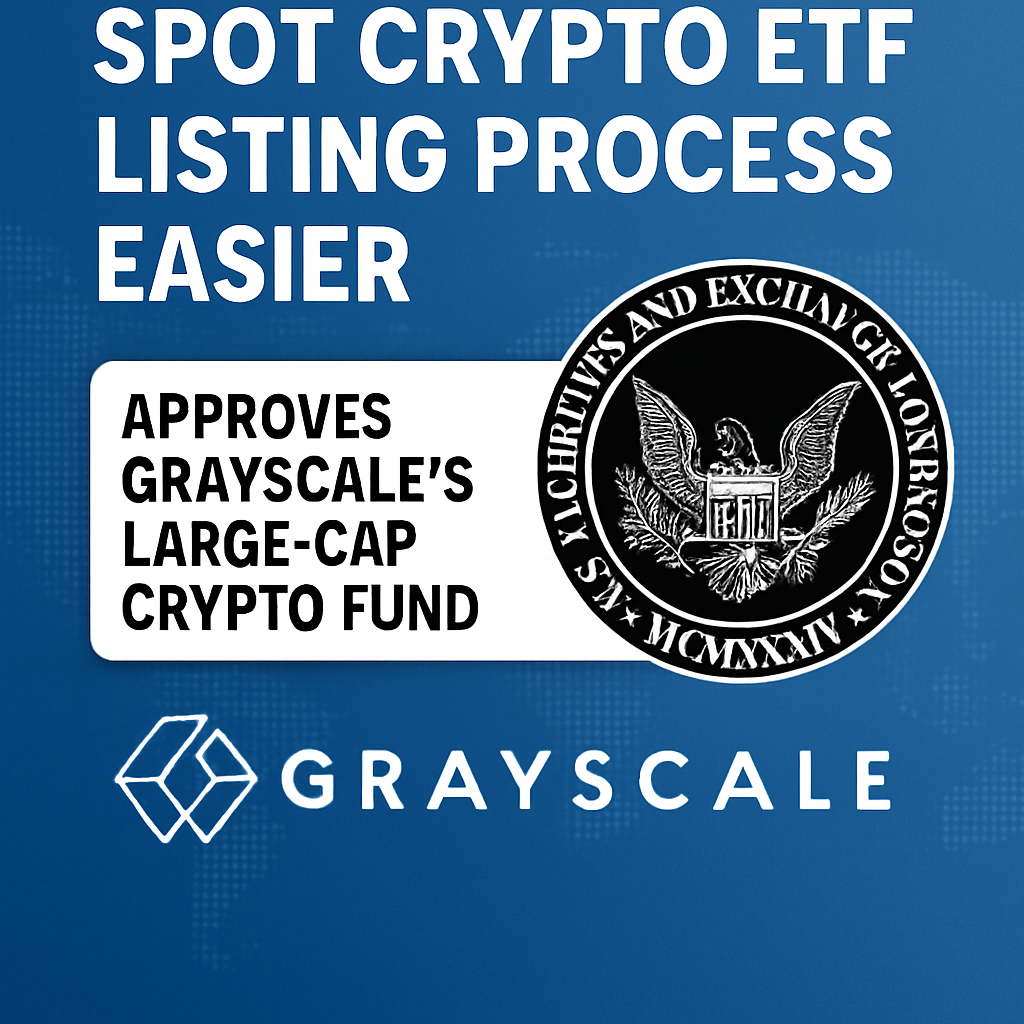The U.S. Securities and Exchange Commission on Sept. 17 approved a set of generic listing standards for exchange-traded products that include spot crypto funds. Under the new framework, exchanges such as Nasdaq, NYSE and Cboe may list commodity-based ETPs, including those backed by bitcoin and other digital assets, without waiting for the SEC’s case-by-case approval under Section 19(b).
SEC Chairman Paul Atkins emphasized that the reform will remove procedural bottlenecks while maintaining investor protections. “By approving these generic listing standards, the Commission ensures that our capital markets remain the best venue for digital asset innovation,” he stated. The agency simultaneously approved the Grayscale Digital Large Cap Fund, which tracks the CoinDesk 5 Index, and granted clearance for options tied to the Cboe Bitcoin U.S. ETF Index.
Previously, issuers seeking to list a spot crypto ETF were required to file a lengthy 19(b) rule proposal, subject to a 240-day review cycle. The generic rule change reduces this timeline to a streamlined process, in which an issuer submits strategy details to an exchange and listing can proceed if generic criteria are met. Observers expect a wave of new spot ETP filings, including altcoin-focused funds, that were previously stalled while awaiting regulatory clarity.
Industry participants welcomed the development as a long-awaited step toward expanded retail and institutional access. Bloomberg Intelligence analyst James Seyffart described the move as “the crypto ETP framework we’ve been waiting for,” predicting dozens of new spot crypto products to launch in the coming months. Kristin Smith, President of the Solana Policy Institute, noted that clear rules will foster growth, liquidity and legal certainty for token markets.
Critics caution that generic approval standards must be paired with robust ongoing oversight to mitigate fraud, market manipulation and custody risks. The SEC reiterated that exchanges must continue monitoring and enforcing listing requirements, including capital and liquidity tests, trading halts and surveillance sharing agreements. This balance between efficiency and investor safeguards will shape the next chapter of regulated crypto investment products in the U.S.
Overall, the SEC’s action on Sept. 17 marks a pivotal shift from piecemeal reviews to scalable rule-based listings. With Grayscale’s Digital Large Cap Fund and new derivatives already approved, the structural change sets the stage for broader adoption of spot crypto ETFs, potentially driving deeper integration of digital assets within traditional financial markets.

Comments (0)